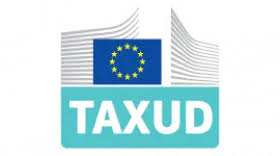 Homepage CASE
Homepage CASE
Selected values

-
Date:
1 Nov 2024 - ongoing
-
Client:

DG TAXUD
-
Project leader:
Syntesia
-
Partner:
CASE
-

Jan Hagemejer
Macroeconomics and Trade Director
Jan Hagemejer’s areas of expertise are international trade as well as macroeconomic and structural issues. He graduated from University of Warsaw where he also obtained his PhD and habilitation, as well as from Purdue University (MA in Economics). He works as an associate professor at the Faculty of Economic Sciences, University of Warsaw. Prior to … <a href="https://case.dev10.pro/project/vat-gap-in-europe-report-2025/">Continued</a>
Projects from this author:
-
Wealth taxation, including net-wealth, capital and exit taxes
The study aims to provide further information regarding the uptake and economic consequences of introducing wealth-related taxes. The purpose of the study is to shed further light firstly into recurrent wealth related taxes by (i) reviewing the conditions for the implementation of a net wealth tax and its consequences, to provide a detailed literature review on recurrent capital taxes in the EU and analyse their economic consequences; and secondly (ii) to provide an overview of existing non-recurrent wealth related taxes, namely, by providing an overview of capital taxes, inheritance and gift taxes and the existing exit tax provisions in the field of personal income taxation (including relevant statutory references), and how these interrelate with and complement the legal framework of taxing net wealth and capital gains. The study builds on previous research work mapping wealth taxes and estimating the consequences of their introduction. It is structured along two parts comprised of two and three workstreams respectively, related to the topics outlined above. Part 1 – Recurrent taxation, Workstream 1 – Net wealth taxes Part 1 – Recurrent taxation, Workstream 2 – Capital taxes Part 2 – Non-recurrent taxation, Workstream 3 – Capital taxes Part 2 – Non-recurrent taxation, Workstream 4 – Inheritance and gift taxes Part 2 – Non-recurrent taxation, Workstream 5 – Exit taxes
-
Increasing economic resilience of Armenia, Georgia and Moldova
The project will be conducted in the context of the ongoing war in Ukraine and Russia’s increasingly assertive regional policy, which will continue to affect the economic situation of the three analysed countries via various channels – trade of goods and services, remittances of labour migrants, financial flows, energy dependence (all countries are net … Continued
- EU4Belarus: Reinforcing Resilience and Democratisation
-
Wealth taxation, including net-wealth, capital and exit taxes
-

Andrzej Robaszewski
Andrzej Robaszewski is Director of Fiscal Policy Studies and Sustainable Development. His areas of expertise also include EU economic governance, energy markets and ESG.
Projects from this author:
-
The challenges of VAT beyond VAT in the Digital Age
This study should consider possible improvements to the EU VAT system and assess their feasibility and likely consequences, based on the analysis of its current weaknesses, gaps, inefficiencies. As requested by the ToR, this requires a forward-looking analysis and prospective reflection, combined with and based on the retrospective assessment of the current situation. The study requires, on the one side, a thorough re-assessment of well-known problems of the EU VAT systems, which have been discussed for years by policymakers, scholars and in courts and tribunals, the solutions to which have already been long proposed in the academic as well as policy arena. On the other side, it requires a fresh view to identify new solutions to old problems, new problems and their possible solutions, as well as potential unknown problems, i.e. those that may appear in the future given the current economic, political and legal evolution and the megatrends of the EU and global society. Operationally, the activities needed to achieve the objectives of the study are straightforward. For each of the areas or angle of analysis, the study team will have to: Identify existing weaknesses and challenges of the EU VAT system, including those that may appear in the future given the likely evolution of the current situation. Design solutions to the problems identified. Assess the feasibility and consequences of the solutions identified.
-
Wealth taxation, including net-wealth, capital and exit taxes
The study aims to provide further information regarding the uptake and economic consequences of introducing wealth-related taxes. The purpose of the study is to shed further light firstly into recurrent wealth related taxes by (i) reviewing the conditions for the implementation of a net wealth tax and its consequences, to provide a detailed literature review on recurrent capital taxes in the EU and analyse their economic consequences; and secondly (ii) to provide an overview of existing non-recurrent wealth related taxes, namely, by providing an overview of capital taxes, inheritance and gift taxes and the existing exit tax provisions in the field of personal income taxation (including relevant statutory references), and how these interrelate with and complement the legal framework of taxing net wealth and capital gains. The study builds on previous research work mapping wealth taxes and estimating the consequences of their introduction. It is structured along two parts comprised of two and three workstreams respectively, related to the topics outlined above. Part 1 – Recurrent taxation, Workstream 1 – Net wealth taxes Part 1 – Recurrent taxation, Workstream 2 – Capital taxes Part 2 – Non-recurrent taxation, Workstream 3 – Capital taxes Part 2 – Non-recurrent taxation, Workstream 4 – Inheritance and gift taxes Part 2 – Non-recurrent taxation, Workstream 5 – Exit taxes
-
Impact assessment support study “Taxation of the Financial Sector”
This study shall provide input for the Impact assessment for a possible legislative proposal for the revision of the VAT exemption as laid down in the VAT Directive 2006/112/EC (1) and a possible legislative proposal for an EU taxation framework for the financial sector (2). The main purpose of this study is to provide an informed analysis of the potential problems arising from the current tax framework applicable to the financial sector in the EU (various sector-specific taxes and the VAT exemption) based on the analysis of the information already available and on the collection of relevant and more up-to-date evidence taking into account the current economic context, notably structural changes that are likely to persist over time, and specific features of the financial sector, notably, its regulatory and supervisory framework. On the basis of this analysis, the objective of the study is to provide insights supporting the potential development of options for an adequate EU taxation framework for the financial sector, which could include amending the current VAT Directive and establishing an EU taxation framework for the financial sector.
-
The challenges of VAT beyond VAT in the Digital Age
-

Marta Kowerko-Urbańczyk
-

Magdalena Wiśniewska
Magdalena Wiśniewska is responsible for managing research projects at CASE. She holds MA in International Relations from the Nicolaus Copernicus University in Toruń and MA in Finance & Accounting from Warsaw School of Economics. During her career she gathered an extensive experience both in the public and private sector. She worked among others for Office … <a href="https://case.dev10.pro/project/vat-gap-in-europe-report-2025/">Continued</a>
Projects from this author:
-
Local and regional success stories of investing in disaster resilience
The aim of the study is to collect, map and share good practices, examples and success stories of investing in disaster resilience (including but not limited to in response to past disasters and the lessons learned from them) at local and regional level. The study focuses on collecting evidence on initiatives, good practice examples and measures taken by the NAT commission members to improve disaster resilience. The study will be built on interviews with NAT commission members based on a questionnaire. The study will also draw conclusions on the benefits of investing in disaster resilience and make some recommendations to local and regional authorities for moving forward based on the success stories collected from the members demonstrating that smart investment at local and regional level can make a difference in disaster risk reduction. The focus will be mainly, but not exclusively, on extreme weather events and climate-related disasters, given their growing frequency, intensity and impact. The study will contribute to knowledge sharing and exchange of good practices, by collecting and sharing success stories from and by members who have invested in reducing vulnerabilities and strengthening disaster resilience at local and regional level. As a repository of local and regional good practice examples, initiatives and measures relating to disaster preparedness and resilience, the aim of the study is also to feed into a bigger and longer-term project to map success stories of investing in disaster resilience on the ground.
-
Wealth taxation, including net-wealth, capital and exit taxes
The study aims to provide further information regarding the uptake and economic consequences of introducing wealth-related taxes. The purpose of the study is to shed further light firstly into recurrent wealth related taxes by (i) reviewing the conditions for the implementation of a net wealth tax and its consequences, to provide a detailed literature review on recurrent capital taxes in the EU and analyse their economic consequences; and secondly (ii) to provide an overview of existing non-recurrent wealth related taxes, namely, by providing an overview of capital taxes, inheritance and gift taxes and the existing exit tax provisions in the field of personal income taxation (including relevant statutory references), and how these interrelate with and complement the legal framework of taxing net wealth and capital gains. The study builds on previous research work mapping wealth taxes and estimating the consequences of their introduction. It is structured along two parts comprised of two and three workstreams respectively, related to the topics outlined above. Part 1 – Recurrent taxation, Workstream 1 – Net wealth taxes Part 1 – Recurrent taxation, Workstream 2 – Capital taxes Part 2 – Non-recurrent taxation, Workstream 3 – Capital taxes Part 2 – Non-recurrent taxation, Workstream 4 – Inheritance and gift taxes Part 2 – Non-recurrent taxation, Workstream 5 – Exit taxes
-
FUTURE FOR ALL – Advancing Cross-Generational Collaboration through Futures Literacy (FFA)
The primary objective of the “FUTURE FOR ALL - Advancing Cross-Generational Collaboration through Futures Literacy (FFA)” project is to encourage active participation of citizens in the life of their respective neighborhoods with a specific emphasis on promoting intergenerational cooperation. The project addressed to elderly and youth residing in youth sociotheraphy centres (and the educators of the respective groups) identifies specific objectives: Face social problems between generations and contributing to lifelong learning Fight stereotypes, improve mutual knowledge and understanding Transfer of knowledge between Norway and Poland, and exchange of experience in applying futures thinking tools in working with intergenerational group Equip seniors and (socially maladjusted) youth with Futures Literacy tools to help them achieve developmental goals for their life stage Raise awareness of the local environment and a sense of responsibility, and agency to improve it To achieve these goals, the project intend to leverage the innovative approach of Futures Literacy to empower and engage the two crucial demographics. Futures Literacy is a concept and methodology developed by the UNESCO that presents an altered perspective on how to perceive and engage with the future (UNESCO, n.a.). It is a cognitive skill and a framework designed to enhance one’s capacity to comprehend, navigate and shape the complex and uncertain nature of the future. Apart from Futures Literacy approach the project will use additional activities designed to address key issues and encourage intergenerational collaboration such as: anti-stereotype and integrational workshops to provide a platform for both generations to openly discuss and challenge stereotypes that may hinder effective collaboration and understanding Urban Game Design: The elderly will take the lead in designing an urban game for the youth, offering them an opportunity to explore and connect with the city they know from a different perspective Planting activity: A shared activity of planting flowers will be organised to foster active citizenship and environmental awareness among the groups. Intergenerational trip: Organisation of a day trip to a museum or a concert chosen by either the elderly or the youth hold immense potential for interesting experiences among the participants The activities planned in the project support intergenerational cooperation, leverage the strengths of different age groups, creating a synergy that is particularly relevant in the context of modern world. By promoting understanding, collaboration, and mutual support among generations we can collectively adapt to and address the complex challenges of today’s rapidly changing world. The project will also strengthen bilateral cooperation between Poland and Norway in the area of building social capital in local communities. It will be achieved by a Polish and a Norwegian organisation that will combine their experiences in supporting active citizenship in their various environments and by using their different areas of expertise. Funding: Fund for Bilateral Relations, hereinafter referred to as the “FBR” the European Economic Area Financial Mechanism 2014-2021 and Norwegian Financial Mechanism 2014-2021 Project Leader: CASE Project Partner: Fremtenkt
-
Local and regional success stories of investing in disaster resilience
Related projects
Thanks for joining us!
You're now part of a community that values [your newsletter's focus]. Get ready to stay informed, inspired, and engaged with our carefully curated content.
